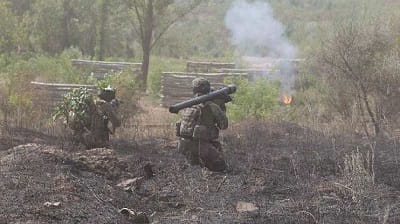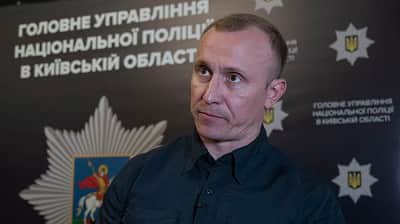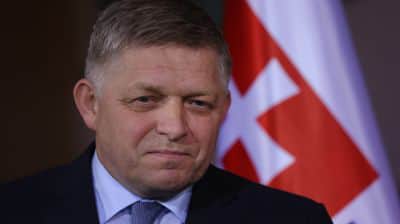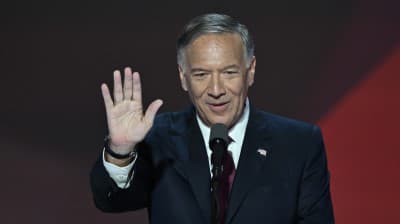American arms dealer makes a fortune in Ukraine with help of Ukrainian sergeant – NYT
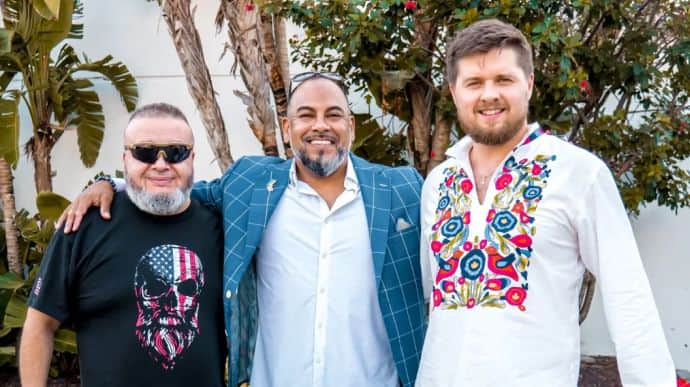
American arms dealer Marc Morales is making millions on supplying Ukraine with armaments with the help of a senior sergeant of the Ukrainian army who is paid to arrange meetings with his contacts in the government.
Source: The New York Times
Details: The NYT writes that Florida arms dealer Marc Morales, 51, has been paying Volodymyr Koyfman, a chief sergeant in the Ukrainian army, to arrange meetings with the official’s government contacts.
"That unusual arrangement, legal experts say, tests the boundaries of American and Ukrainian corruption laws prohibiting payments to government officials," it is stated in the article.
Last month, about six men met at the penthouse bar of one of Kyiv’s most luxurious hotels to discuss the lucrative business of arming Ukrainian troops, as recounted to the NYT by two participants in the meeting. Morales, Koyfman and Ukrainian military and government officials were present. The meeting revealed a quiet part of the Biden administration’s war strategy.
The US has provided Ukraine with over US$40 billion of security aid, advanced armaments included. But the Pentagon depends on little-known arms dealers, like Morales, with connections necessary for obtaining ammunition. The ammunition is mainly of low quality or Soviet calibre, taken from all over the world. Morales and his colleagues’ arms trade is "notoriously shadowy" and "clubby", but it has become even less transparent with Ukraine cancelling anti-corruption rules that had been in place for years.
Morales is one of the key dealers for Ukraine. The Pentagon has signed contracts worth about US$1 billion with his company, Global Ordnance, mainly for ammunition supply. According to records, Morales has made US$200 million on his side business of supplying weapons directly to Ukraine.
However, Morales’s company is being investigated by Ukrainian anti-corruption bodies in connection with the agreement that government officials called a failure. In 2009, the US Justice Department accused him of conspiracy and money laundering after he was allegedly caught discussing methods of bribing foreign officials on tape. "You just got to be smarter than the government," he said on one recording. The charges were dropped later.
Bryan Van Brunt, the general counsel for Morales’s company, Global Ordnance, said the company followed the law.
Sergeant Koyfman, who has many years of experience as an adviser to Ukraine’s national guard, went to fight for Ukraine when Russia first invaded in February of 2022, documents reviewed by The New York Times show, though his duties are unspecified. Koyfman himself said he is a chief sergeant in the Territorial Defence Forces of Ukraine and that he trains and supervises a unit of soldiers.
Koyfman is a key figure to turn to for arms, one government official said, though it is unclear whether it is because of his military position or his role in Global Ordnance. In Morales’s company, Koyfman's role is managing Ukrainian contractors and setting up "meetings between our staff and the Ukraine Ministry of Defense," Van Brunt said.
Koyfman claims his military work is not paid. Van Brunt stressed that the two jobs had nothing to do with each other. "Global does not pay for access," he said. "Not before. Not now. Not ever."
Sergeant Koyfman reiterated Van Brunt’s point: "We do training on it every year and sign documents about it."
American companies are prohibited by law from paying foreign officials in exchange for benefitting their business. Sergeant Koyfman would not be exempt simply because he is a volunteer; the decisive factor is whether they have influence, said Daniel Richman, a Columbia Law School professor.
Ukrainian law generally prohibits military officials from engaging in other paid work. Whether that law affects Sergeant Koyfman depends not only on his rank but on his military duties. Early in the war, Sergeant Koyfman said, in a letter to Global Ordnance, that he was a "civilian warfighter" rather than a government employee.
The Ukrainian government allegedly knew about Koyfman’s work for Global Ordnance. Van Brunt said that Sergeant Koyfman has been vetted by the State Department, which is responsible for American weapons exports.
Early into the full-scale war, Morales also hired Denys Vanash, a longtime adviser to the Ukrainian defence minister, to communicate with the Defence Ministry on behalf of Global Ordnance. Van Brunt said Ukraine’s Defence Ministry confirmed the legality of the hiring.
Morales is said to have an unfair advantage over his competitors, although this is not due to his ties to Koyfman or Vanash, but thanks to his connection with the Pentagon. Several sources revealed that he "outbid rivals to buy explosive shells from Bulgarian arms factories".
Government documents and interviews with arms dealers indicate that he has been supplying missiles, shells, grenades and armoured vehicles to Ukraine from Bulgaria, Egypt, Jordan and Pakistan. And he is not unique in his position as a dealer with connections in the Ukrainian government.
Ukraine’s frantic buying unexpectedly resulted in state-owned firms and private dealers being in competition with each other, which made the prices spike, costing Ukraine money. The government profits when buying weapons from state-owned companies; brokers profit when it buys from private sellers.
One example involved armoured vehicles desperately needed by the military. Early in the war, Ukrinmash, a government-owned export company, negotiated a roughly US$65 million deal with an Egyptian seller to buy nearly 200 vehicles, a person involved in the deal says, but the deal stalled. At that point, Global Ordnance offered to provide similar vehicles at similar prices, earning the profits instead of the government-owned company.
However, the deal caused problems for the military. The vehicles arrived improperly outfitted, said Volodymyr Havrylov, an assistant defence minister in Ukraine. Anti-corruption bodies began looking into the agreement then, with Morales and the Defense Ministry officials who authorised the contract being investigated as well, one source says.
The Defense Ministry said that the investigation had been "eliminated", NYT reports. Anti-corruption officials would not confirm that.
Ukrainska Pravda is the place where you will find the most up-to-date information about everything related to the war in Ukraine. Follow us on Twitter, support us, or become our patron!
